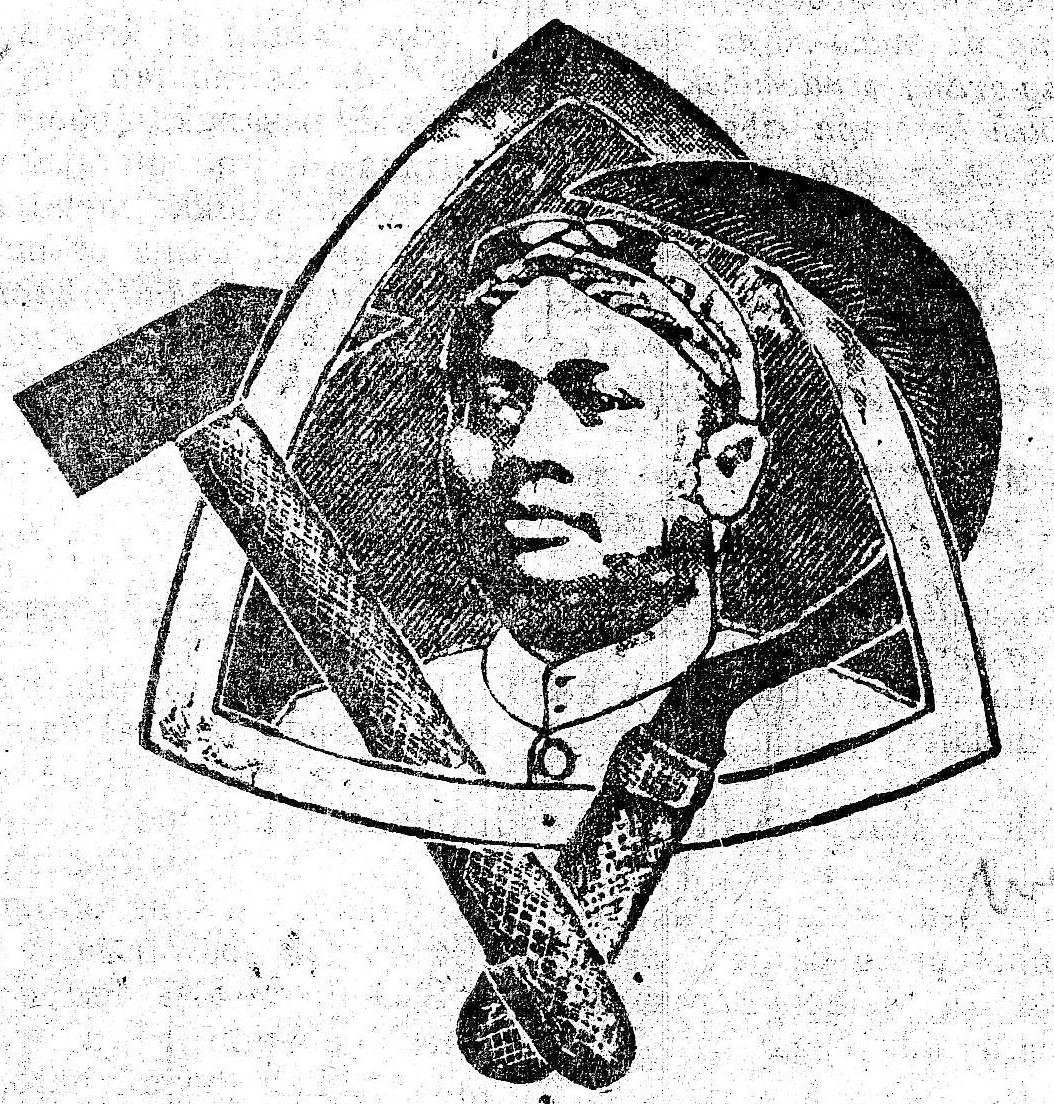|
Haji Misbach
Mohammad Misbach ( 1876–1926), commonly known as Haji Misbach, was a communist and Islamic activist from Surakarta, Dutch East Indies. He was a leading member of the left wing of the Sarekat Islam organization in the 1910s and famously advocated for the compatibility of Islam and Communism. Biography Misbach was born Achmad in Kauman, Surakarta, Dutch East Indies in around 1876. He was the son of a wealthy Batik trader and received a traditional Islamic education in a Pesantren, as well as a brief eight-month period in a government school. He entered the Batik trade and became fairly wealthy, owning his own workshop. When he got married he changed his name to Darmodiprono; however, after making the Hajj he changed his name once again to Hadji Mohammad Misbach. When the Sarekat Islam was founded in Surakarta in 1912, he joined, although he was initially not prominent. Misbach started to become well-known among the reformist generation in Surakarta (called or young group); he ... [...More Info...] [...Related Items...] OR: [Wikipedia] [Google] [Baidu] |
Hadji M
Hadji (also spelled '' Hajji'', ''Haji'' or ''Hatzi'') is a title and prefix that is awarded to a person who has successfully completed the Hajj ("pilgrimage") to Mecca. It may refer to: People * El Hadji Diouf (born 1981), Senegalese footballer * El Hadji Guissé, Senegalese judge * Hadji Murad (c. 1790–1852), Caucasian leader * Mustapha Hadji (born 1971), Moroccan international footballer * Youssouf Hadji (born 1980), Moroccan international footballer (and Mustapha's younger brother) * Samir Hadji (born 1989), French footballer * Stelios Haji-Ioannou (born 1967), Cypriot entrepreneur *Hajji Ebrahim Shirazi (1745–1801), kalantar of Shiraz and Grand Vizier under the Qajars Fictional * Hadji (character), an Indian protagonist in the American television series ''Jonny Quest'' Other uses * "Hadji Girl", a 2006 song by Corporal Joshua Belile of the United States Marine Corps See also * Hajji (other) Hajji is an honorific title given to a Muslim person who has suc ... [...More Info...] [...Related Items...] OR: [Wikipedia] [Google] [Baidu] |
Djawi-Hisworo
Djawi-Hisworo was a newspaper printed in Surakarta, Dutch East Indies from 1909 to 1919 in Malay language, Malay and Javanese language, Javanese. It was considered the mouthpiece of the early Javanese people, Javanese self-improvement organization Boedi Oetomo. History Origin of Djawi-Hisworo The founder of ''Djawi-Hisworo'', Priyayi#Raden, Raden Martodharsono had worked in the court of the rulers of Surakarta (Susuhunan) in the 1890s, but was arrested and jailed in Lombok in 1894 on charges of counterfeiting or forgery. He managed to escape to Sumatra where he was arrested once again and forced to serve his sentence there. After being released, he returned to Java, and ended up in Bandung. There, he ended up working as an editor for Tirto Adhi Soerjo at Medan Prijaji, a pioneering newspaper in the Indonesian National Awakening. He then returned to his home city of Surakarta and set about to found his own newspaper. The year it was founded is unclear; Ahmat Adam lists it tentat ... [...More Info...] [...Related Items...] OR: [Wikipedia] [Google] [Baidu] |
Muslim Socialists
Muslims ( ar, المسلمون, , ) are people who adhere to Islam, a monotheistic religion belonging to the Abrahamic tradition. They consider the Quran, the foundational religious text of Islam, to be the verbatim word of the God of Abraham (or ''Allah'') as it was revealed to Muhammad, the main Islamic prophet. The majority of Muslims also follow the teachings and practices of Muhammad (''sunnah'') as recorded in traditional accounts (''hadith''). With an estimated population of almost 1.9 billion followers as of 2020 year estimation, Muslims comprise more than 24.9% of the world's total population. In descending order, the percentage of people who identify as Muslims on each continental landmass stands at: 45% of Africa, 25% of Asia and Oceania (collectively), 6% of Europe, and 1% of the Americas. Additionally, in subdivided geographical regions, the figure stands at: 91% of the Middle East–North Africa, 90% of Central Asia, 65% of the Caucasus, 42% of Southeast Asia, ... [...More Info...] [...Related Items...] OR: [Wikipedia] [Google] [Baidu] |

